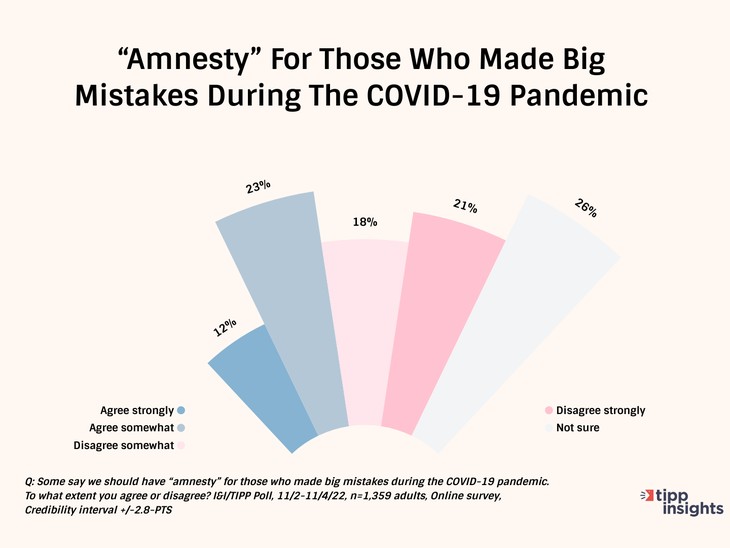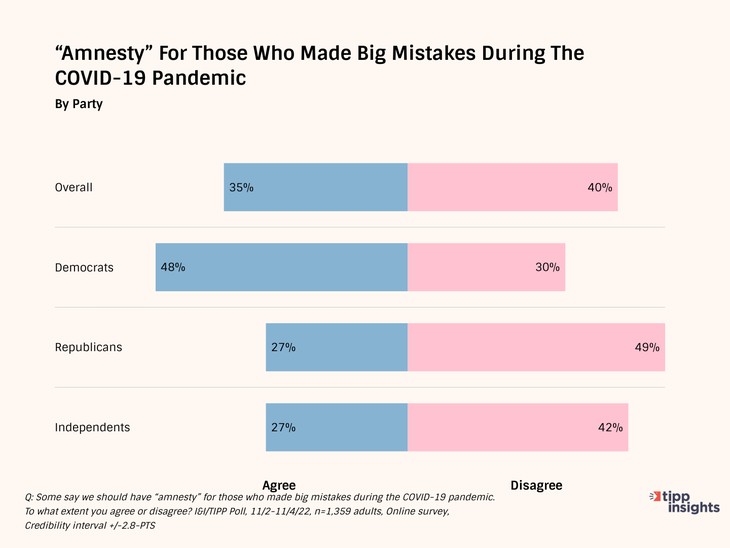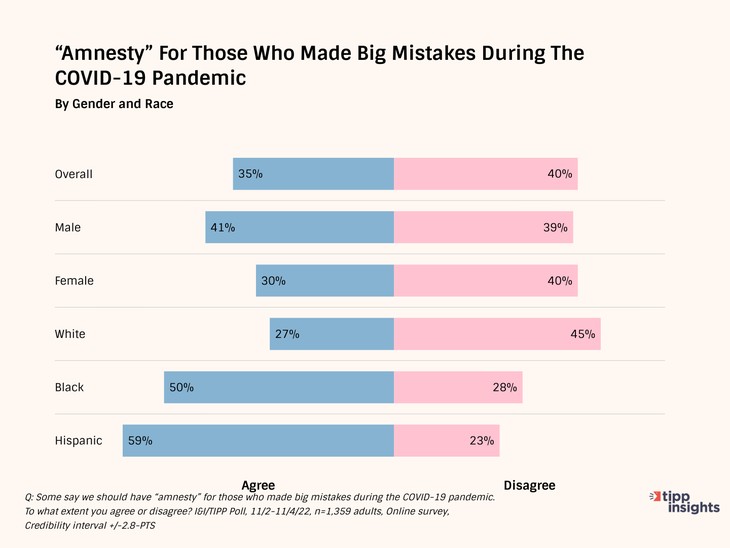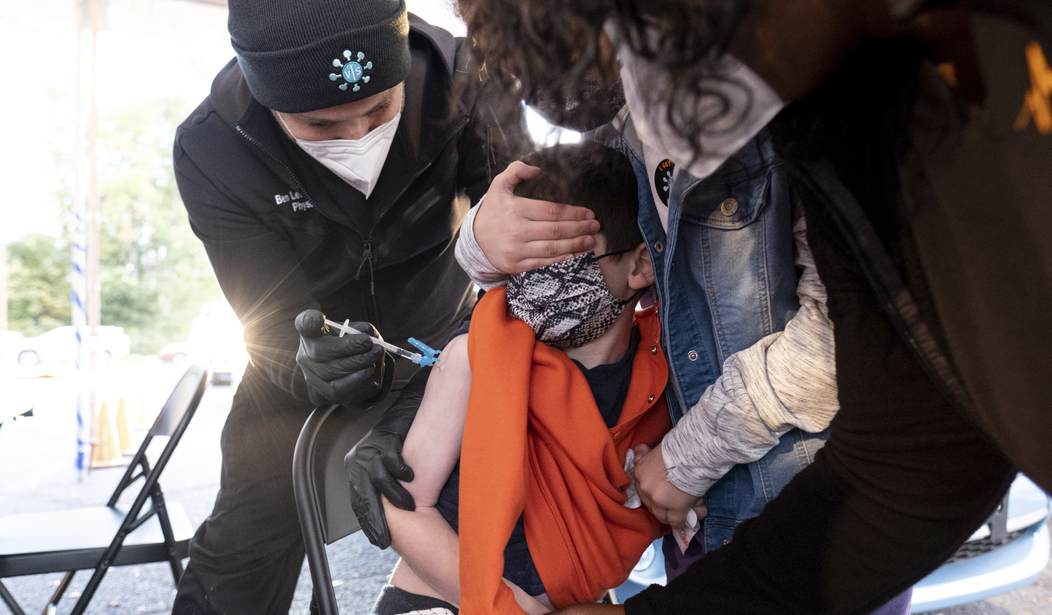At the end of last month, economist Emily Oster penned a piece at The Atlantic entitled, “Let’s Declare a Pandemic Amnesty.” She wrote of the snap decisions that various authorities made during the COVID-19 pandemic, many of which have had devastating consequences.
In Oster’s calculus, governments and health experts made choices based on the information they had at the time, so it isn’t helpful to hold them accountable for the long-term effects of those decisions.
“We have to put these fights aside and declare a pandemic amnesty,” she concluded, adding later, “Moving on is crucial now, because the pandemic created many problems that we still need to solve.”
Interestingly enough, Oster wants to exempt “purveyors of misinformation” from this amnesty while offering forgiveness to those who kept kids out of school, shamed those who chose not to mask up, and pushed vaccines on the public.
On one level, it makes sense to focus on the future and remedying the problems that the pandemic and governmental policies caused. But an amnesty — in other words, declining to hold accountable those who kept edicts and mandates in place long after they were proven to be ineffective or detrimental — sounds like a bridge too far for many people.
At least that’s what voters have to say in a new poll from Tippinsights, in conjunction with Issues & Insights. Terry Jones writes:
We asked: “Some say we should have ‘amnesty’ for those who made big mistakes during the COVID-19 pandemic. To what extent do you agree or disagree?”
Some 35% of all respondents said they either “agree strongly” (12%) or “agree somewhat” (23%), according to the poll.
But the “disagrees” were slightly larger, at 39%, with most saying they “disagree strongly” (21%), compared to those who said they “disagree somewhat” (18%). A significantly large 26% of all respondents said they were “not sure.”
The results really are a mixed bag, but the edge goes slightly to those who prefer holding officials accountable over those who want to give them a free pass.

Not surprisingly, nearly half of Democrats, 48%, support the idea of pandemic amnesty, while only 27% each of Republicans and independents come out in favor of it. Forty-nine percent of Republicans disagree with the idea, while 42% of independents disagree.

Related: Are You Ready to Forgive and Forget for the Damage Done by COVID Lockdowns?
Looking at the data in terms of demographic categories reveals some interesting trends. Men are more likely than women to support the idea of amnesty, while black and Hispanic voters have the highest percentage of those who agree with the notion.

While the results are as tight as most anything these days, including the midterm elections, proving just how divided we are as a country, the polling does give a slight edge to those who don’t think that giving bureaucrats and experts a pass is the way to move forward.
It’s time to hold accountable those who held our country back. From politicians to public health bureaucrats to teachers’ unions, anyone who advocated for draconian, authoritarian policies needs to answer for his or her decisions.
While we’re at it, it’s time for apologies as well. The left needs to apologize to red-state governors who opened up their economies early and still took care of their people. Leaders like Georgia’s Brian Kemp — whom The Atlantic, the very publication in which Oster calls for “pandemic amnesty,” accused of engaging in an “experiment in human sacrifice” — and Florida’s Ron DeSantis deserve some vindication.
Joe Biden and his COVID team should apologize to all of us who didn’t line up for the vaccine for threatening us with a “winter of severe illness and death” when we didn’t obey without question. Any business owner who lost money or closed during the pandemic deserves an apology as well.
Oster says that we should move forward, and she’s right, but we can’t do that without an accounting for what pandemic policies did to people of all ages, ethnicities, and political persuasions. That reckoning is long overdue.










Join the conversation as a VIP Member